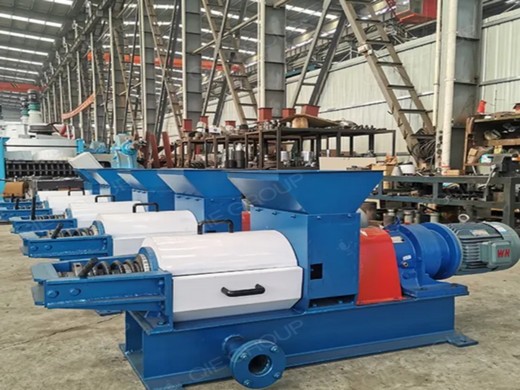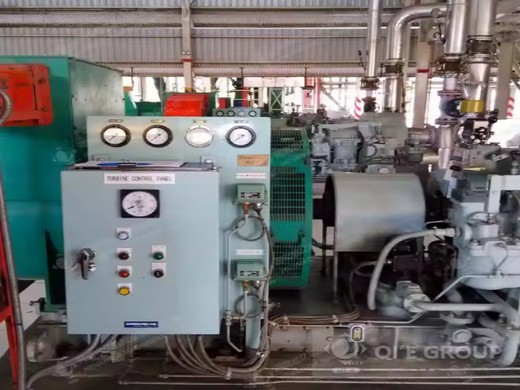Palm Oil Industry in Indonesia CPO Production &
Palm oil is one of the world's most produced and consumed oils. This cheap, production-efficient and highly stable oil is used in a wide variety of food, cosmetic and hygiene products, and can be used as source for bio-fuel or biodiesel.
Collectively, the sum of palm oil, palm kernel oil, and other palm oil products is the fourth-largest contributor to the country’s economy, accounting for 8% of the Gross National Income (GNI) per capita. Malaysia exported 24.27 MMT of palm oil products in 2011
Palm Oil: Good or Bad? healthline
Palm oil is used for cooking and is also added to many ready-to-eat foods in your grocery store. Its taste is considered savory and earthy. Some people describe its flavor as being similar to
Palm Oil Industry in Malaysia Skills & Knowledge for Sustained Development in Africa 24 June 2009 2 Origin of Palm Oil Source: MPOC Publications Cooking to sterilise fruit bunches Separate fruitlets from the bunch Softening the fruitlets Pressing out oil Oil collection
Palm Oil WWF
Palm oil is the world’s most traded vegetable oil, widely used as a cooking oil and in the manufacturing of many products, from margarine to lipstick, biscuits to candles, chocolate to
Responsible production: in 2004, a group of environmental non-profits and palm oil companies joined together to set up the Roundtable for Sustainable Palm Oil (RSPO). The roundtable sets out eight
Development of Palm Oil and Related Products
Development of Palm Oil and Related Products in Malaysia and Indonesia . By Rajah Rasiah and Azmi Shahrin. Abstract. Oil palm currently occupies the largest acreage of farmed land in both Malaysia and Indonesia having overtaken rubber and coconuts respectively. The first oil palm trees planted in Malaya came from Sumatra (Indonesia).
Palm oil plays a decisive role in the lives of almost everyone of us. Being a low-cost resource, palm oil is in great demand and is contained in virtually everything. You can find it in foods ranging from frozen pizza to chocolate bars, in laundry detergents and cleaning agents, in cosmetics, in diesel fuel tanks and in combined heat and power plants.
Key Sustainability Issues in the Palm Oil Sector
Development of the palm oil sector This document, Key Sustainability Issues in the Palm Oil Sector addresses the second stage of this process. This paper provides a general Originating in West Africa, the oil palm, Elaeis guineensis Jacq., has over the last century been an increasingly important driver for the economies of producing
Local knowledge of the oil palm in West and Central Africa constitutes a rich heritage that can be capitalised on to safeguard African biodiversity. While the plantations and factories of the industrial system employ relatively few workers, traditional systems provide products and income for millions of people. Women in particular are involved in the harvesting, processing, and marketing of
- Which country imports Malaysian palm oil?
- Kenya, with a population of approximately 53.7 million, has become the biggest importer of Malaysian palm oil in the Sub-Saharan Africa region this year. Based on the latest MPOB data, MPO exports to Kenya has risen by a massive 185.6% from just 111,261 MT in Jan-Sep 2019 to 317,726 MT so far this year.
- What is Malaysian palm oil biofuels development?
- The main focus will be on the Malaysian palm oil biofuels development which consist of prospects, policies, and challenges faced in order to promote biofuels to replace petroleum fuels as most countries in the world are now moving towards a more renewable and sustainable energy. 3.
- What will Malaysia do to improve palm oil market access?
- A comprehensive global market research network will be developed, involving both the private and public sectors. In addition, Malaysia will continue to negotiate for greater market access for palm oil products through free trade agreements (FTAs) and negotiations at bilateral, regional and multilateral levels.
- What are the social benefits of palm oil in Malaysia?
- For the future, the locals will receive positive social benefits regarding palm oil sectors . Malaysia would be able to create more employment and extra tax revenue for the government, as well as fuel subsidy savings as there will be increasing expansion of palm oil biodiesel production .
- What impact does oil palm cultivation have on Africa?
- The impacts of oil palm cultivation have been studied extensively in Southeast Asia and – to a lesser extent – in Latin America but, in comparison, very little is known about its impacts in Africa: oil palm's native range, and where cultivation is expanding rapidly.
- Why are oil palm farmers struggling in Malaysia?
- In Malaysia, the low profitability of the sector, constant labour shortages, and rising production costs, such as fertilizers, threaten oil palm farmers’ incomes (Organisation for Economic Co-operation and Development & FAO, 2022). Farm-level production costs difer according to the type of plantation and the topography of the palm estate.






